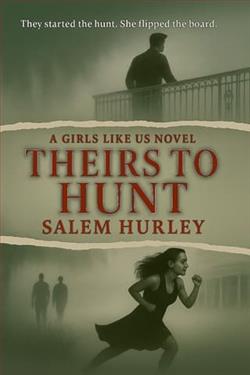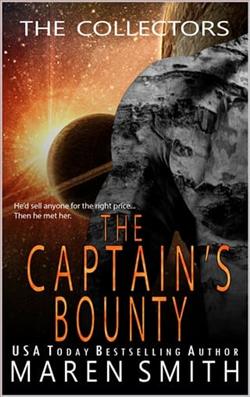Page 10 of The Number of Love
She shook herself. “But I have Maman still. Sophie De Wilde—I think you’ve met her? And my brother, Lukas.”
“Oh, yes, she’s been very kind.” Dot opened up her lunch sack. Then paused. “Wait. Lukas De Wilde? The violinist? I’ve a recording of him!”
Margot smiled and reached into her own bag. “Yes. He came to Wales with the orchestra in the first days of the war, to help raise money for the Belgian Relief Fund. Now he stays here in London to be close to us, rather than touring with the others. Well, and because his wife’s family is here.”
“He’s so very talented. And how lovely that you’re all together.” Dot pinched a bit of crust from her sandwich and tossed it to a flock of pigeons.
A waste of precious grain, Maman would say.
But the pigeons needed to eat too. Margot tore off a small piece and sent it to them as well. “Does your Spanish family ever visit you here?”
The young woman’s laugh didn’t sound very amused. “Oh no. Never. Abuelo never leaves his house in Bilbao, and he is all the family my mother had. I have an aunt though, on my father’s side. Aunt Millie. We lived together until just recently. That bombing in Poplar shook her far too much, and she finally fled for the countryside. So it’s just me here now. Except for when Drake is on leave, of course.”
His image sprang to mind—amused eyes, ready smile, knotted nose. The evidence suggested he hadn’t discovered her name before he left, but he’d certainly have no difficulty now that she’d volunteered it to his sister. Margot tore off a bite of bread and cheese andgrinned. “Your brother? The one who brought you here last week?” She popped the food into her mouth.
Dot nodded as she chewed a bite of her own. “It seems I’ve scarcely seen him since the war began. And before that, he was attending university in Spain. But he’s always been attentive, as brothers go.”
“I know just what you mean.” Lukas, too, had spent much of Margot’s childhood traveling on tour with the orchestra. Of course, he was quite a bit older than her too, already practically grown by the time she came along. Still. He was her brother. He had always been one of the dearest people in the world to her, and she was glad they lived so near to each other now.
Silence fell for a moment as they both took another bite, interrupted only by the sounds of the busy street before them and the coo of the pigeons feasting on their crusts.
Then Dot drew in a long breath. “It isn’t the work. It isn’t even all the strangers I’m expected to remember. It’s ... I hate leaving the house. Ithurts. No one understands that, no one can grasp how my chest gets so tight at the very thought of needing to go out. I can manage it one day a week without too much stress. Twice, if someone is with me. But every day?Every day.” Her hands shook again as she lowered her sandwich to her lap. “I don’t expect you want to be burdened with such a friend, so I won’t take it personally if you keep your distance. I’m a wreck. Aunt Millie declared it completely irrational of me to prefer to stay here in the flat I’ve made my home rather than flee to safety. I couldn’t explain to her that it feels safer than somewhere new.”
Margot kept her attention on a car sputtering its way along the street. “I get itchy. So itchy it hurts—not when I need to leave the house, but when something doesn’t make sense, including people and their faulty reasoning, which means I’m itchy more often than not. Wanting to stay at home is a rather reasonable inclination, in my opinion. I’ll never judge you for it.” Now she looked over and found Dot looking ather. “I’m not a secretary—I’m one of the cryptographers. I hate fashion, I hate gossip, and I absolutely cannotstandgirls who giggle over every man who sends a smile their way. So ifyouwant to walk the other way, I won’t begrudge it.”
Peace in her eyes, Dot shook her head.
“Well then.” Margot smiled and reached into her bag for the handful of almonds Maman had tucked in there after Margot had made both their sandwiches. She handed a few to Dot and popped the others into her mouth. “It looks as though we might as well be friends.”
Dot munched on her nuts and didn’t say a word. Just smiled a little and relaxed against the bench.
Margot did the same. This could work. Which she had pretty much known the moment the Pythagorean theorem spun through her head upon spotting her.
Mathematics never led her astray.
4
Margot.”
She looked up, numbers still clouding her eyes until she blinked. Admiral Hall came into focus. He stood at her side, irritation on his face and a paper in his hand, which he slid onto her desk. “Would you? It’s from Thoroton. I’ve been called in to a meeting with the First Sea Lord.”
He looked none too happy about it, that was for sure. But then, she knew he had not been pleased with how Jellicoe had been running things of late.
Her gaze dropped to the paper. With a glance, she saw that it was one of their own telegrams, not an intercepted one, encrypted in the code Hall used with his agents and operatives in the field. All it would take to decode it would be to pull out the book he’d slipped her a year ago for occasions such as this and perhaps twenty minutes of deciphering. “Of course. Shall I just put it on your desk when I’m finished?”
“Yes, that will do.” He patted her shoulder. “How is the latest German codebook working for us?”
“Quite well.” The cryptographers in Room 40 could break the new variations day by day—that was simply a matter of finding a new starting place in an existing pattern. But to unravel the pattern itself was a different story, and the Germans were constantlychanging their codebooks. Oh, they could crack the codes by sheer mathematics—eventually. They’d done it with Code 13040. And while that might be more sporting, it also took more time. Months,yearsmore time. And they hadn’t that leisure.
Hence why DID offered prizes to divers who could recover German codebooks from U-boat wreckage. That was where this latest one had come from, which she was now using to render a message sent last night to UC-44, a German minelayer. Putting Thoroton’s telegram aside for now, she tapped the page on which she was writing the translation. “I could be wrong, sir, but ... but so far this reads rather knowledgeably. ‘Sweeper to be in harbor at midnight on Tuesday. Postpone operations until Wednesday and then proceed....’”
Hall grunted. “You’re right. Our minelaying code must have been compromised—that’s the only way they’d know when our sweepers would be out clearing the waters. Well.” A mischievous twinkle entered his eyes—the very sort that had always been in Papa’s whenever he had an idea for a new puzzle to hide for her. “If they have our minelaying code, let’s use it against them. Would you mind encrypting something for me too?”
In answer, she pulled out a blank sheet of paper and handed him her pen. If it was something to be put into the minelaying code, which she suspected it was, she’d have to fetch the codebook from downstairs. But for the pleasure of getting toencrypt and not justdecrypt, it would be well worth the exercise.
Hall leaned over and scratched a message onto the page.In minelaying code. Harbor clear.He drew a horizontal line under that quick message and then wroteIn personal code. To harbor master. Close harbor to all traffic. Do not—I repeat,do not—clear mines already laid.
The light of mischief traveled from his eyes to the corner of his mouth, which turned up in a smile. “There we are. We’ll send the all clear tomorrow, which the huns will intercept, letting them think all their mines are gone. Then, when they come to lay more, they’ll come across the ones still there. How isthatfor turnabout?”















